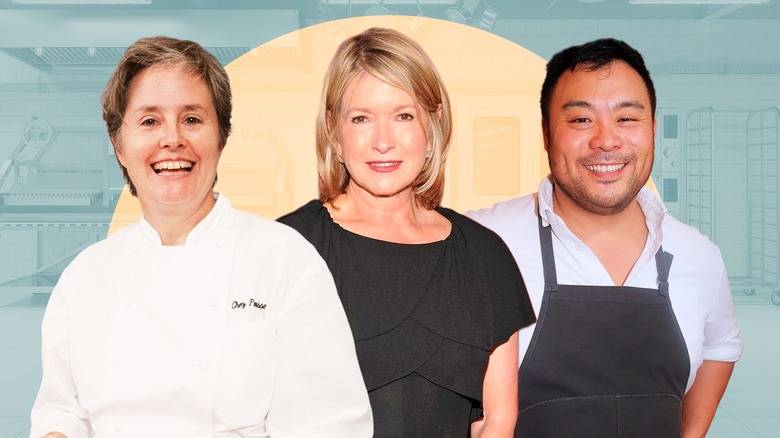
Static Media / Shutterstock / Getty
The familiar story arc begins in the dish pits, or around a grandmother’s oven: That first taste for the kitchen sparks a culinary interest that builds into a burning passion, then ambition. Maybe there’s a dish that does it, or a legacy that emerges from boiling pots where celebrity chefs are forged in the mysterious broth we refer to as destiny. These innovators were born for greatness, cosmically gifted, and ushered down the predictable track to international renown. It’s a hero’s journey of sorts, and we’ve all heard some variation of it. But not every big name in cooking was made along these well-worn paths.
From journalism and advertising to botched careers in finance, some of the most recognizable personalities in cuisine owe their success to following crooked roads through failures that have nothing to do with collapsed soufflés or dropped dishes. Here are seven chefs who found their calling in unexpected places, at unexpected times, or simply through trial and error.
1. Julia Child worked for a U.S. intelligence agency during WWII
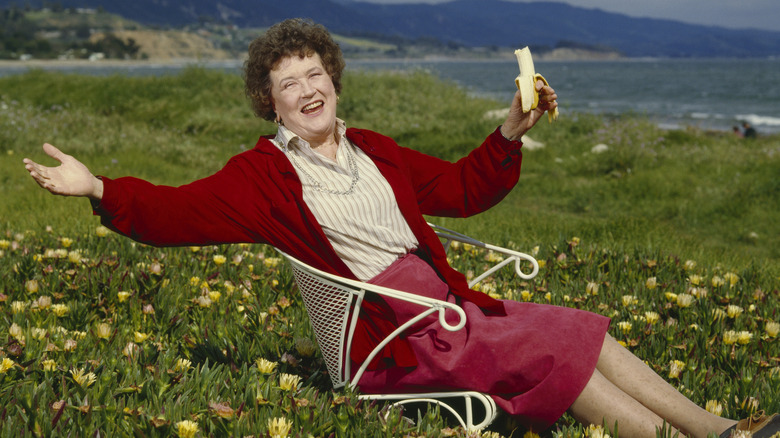
Bonnie Schiffman Photography/Getty Images
There are few people quite so deserving of the designation of celebrity chef as Julia Child. Widely credited for introducing the American public to French cuisine, Child broke barriers between burdensome kitchen chores and creative expression, home cooking and complex craft, and women and television fame. Her name is synonymous with the rejection of TV dinners and the philosophy of eating well as integral to living well. So it may come as a surprise that she sort of stumbled upon this storied career by accident.
Child graduated from Smith College with plans to become a writer and a yen for adventure. When the United States entered World War II, she enlisted in an intelligence agency, and found herself in Ceylon (now Sri Lanka). There she met Paul Child, who would whisk her away to France, where she fell in love with French cuisine. While in France, Child enrolled in Le Cordon Bleu cooking school, and met two women, Simca Beck and Louisette Bertholle, who were working on a cookbook for Americans. They enlisted her as a collaborator.
Child returned to the States, and 10 years of recipe testing and revision later, that book, “Mastering the Art of French Cooking,” found a publisher. Its popularity earned her a television appearance. Viewers couldn’t get enough, and the rest, as they say, is history. Albeit one that lives on in countless kitchens today.
2. David Chang did a brief stint in finance
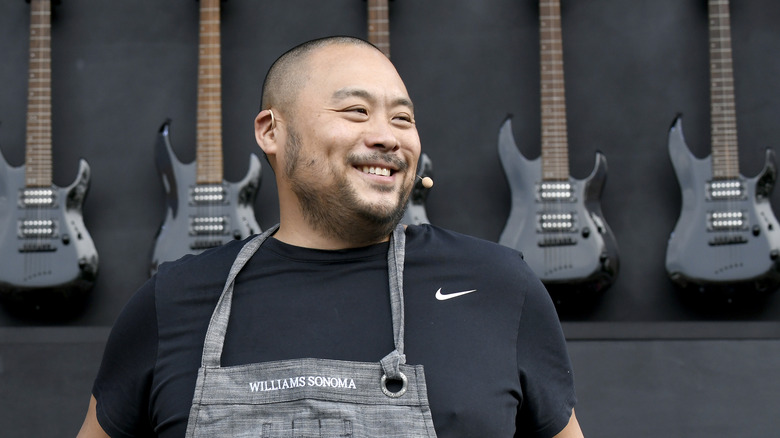
Tim Mosenfelder/Getty Images
Known perhaps as much for his gregarious personality as his culinary prowess, David Chang is an author, trendsetter, Michelin-starred restauranteur, and paragon of the informal fine dining movement that has since swept the country. His renown far surpasses the ever-widening niche of foodie geekery, and even the fast food devotees would likely recognize his image, if not his identifiably irreverent (and persistently controversial) character.
Maybe it makes sense then that Chang’s unconventional success is the result of an unconventional journey. Far from being raised on Michelin dreams and dish pit work ethics, he majored in religious studies at Trinity University before teaching English in Japan and attempting a short-lived career in finance. Then, almost inexplicably, he jumped the tracks and enrolled in the French Culinary Institute in New York City. Next, he moved back to Japan, where he worked in a noodle shop before returning to the States, where in 2004 he opened the now legendary Momofuku Noodle Bar, the success of which would usher him into a life of fame that would transcend the restaurant industry.
3. Sunny Anderson was an Air Force radio host
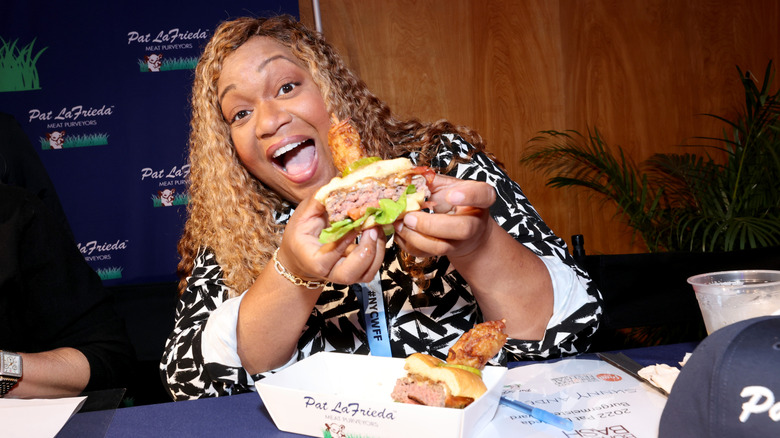
Cindy Ord/Getty Images
When we think of celebrity chefs, it’s usually those who ascended from hard kitchen labor into the public eye that spring to mind. But in the case of Sunny Anderson, the script is very nearly flipped. Anderson got her start in entertainment, working first for a U.S. Air Force radio station in Seoul, Korea. After leaving the military, she continued her career in radio, eventually landing a job covering music at Hot 97 in New York. But Anderson had another passion: cooking. She started a catering business in 2003, and someone from The Food Network apparently took note.
In 2005, Anderson appeared on “Emeril Live!” This seems to have kicked her career up a notch, and in 2008, she snagged her first show, “How’d That Get On My Plate.” Anderson has since hosted “Cooking For Real,” “Gotta Get It,” and “The Kitchen,” and appeared on “The Wendy Williams Show,” “The Early Show,” and “The Rachel Ray Show.” With a reputation for simple tips and tricks that elevate family dinners and hosted affairs alike, Anderson’s guidance has become the secret weapon of home cooks everywhere.
4. Martha Stewart was a teen model
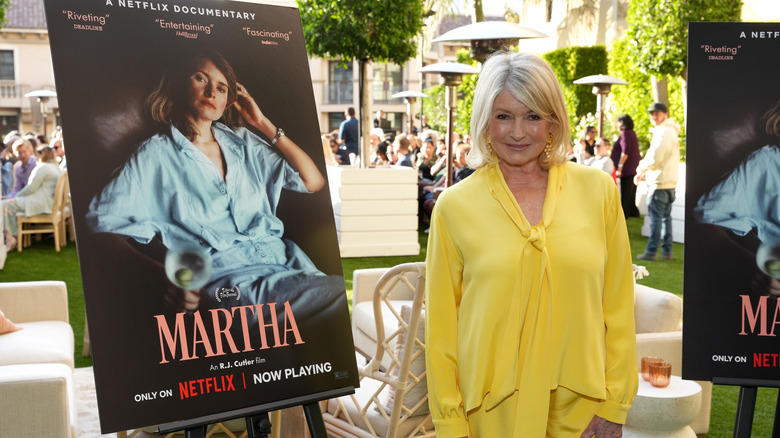
Gonzalo Marroquin/Getty Images
Even if you don’t follow celebrity chefs (or Snoop Dogg), you know who this one is. Martha Stewart’s uncommon level of fame is the result of an equally uncommon story, one that owes its arc to the work of another celebrity on this list: Julia Child.
Growing up in a working-class New Jersey neighborhood, Stewart started modeling when she was just 13. In college, she studied European and architectural history, but then entered into a career as a stockbroker that would last for five years. At this point, her resume was already looking something like a series of non-sequiturs, but the last professional pivot would tie together the skills developed by her varied experiences. Carrying her business acumen, European cultural knowledge, and practiced congeniality, Stewart taught herself how to cook by reading Julia Child’s “Mastering the Art of French Cooking,” and started a hugely successful catering business serving elite clients. From there, it was a short leap into publishing, where her books and magazines sold like, well, hotcakes. Her popularity was so great that she used her Wall Street experience and took her company, Martha Stewart Omnimedia Inc., public. It was a move that would make her a billionaire. At least until she was convicted of insider trading (it didn’t stop her from cooking).
Even that highly public scandal couldn’t diminish Stewart’s fame, however. Now lauded as a “lifestyle mogul” by NBC, Stewart recently joined chef Jose Andres for a new series, “Yes, Chef!” that premiered in April 2025.
5. Alice Waters was a scholar and activist
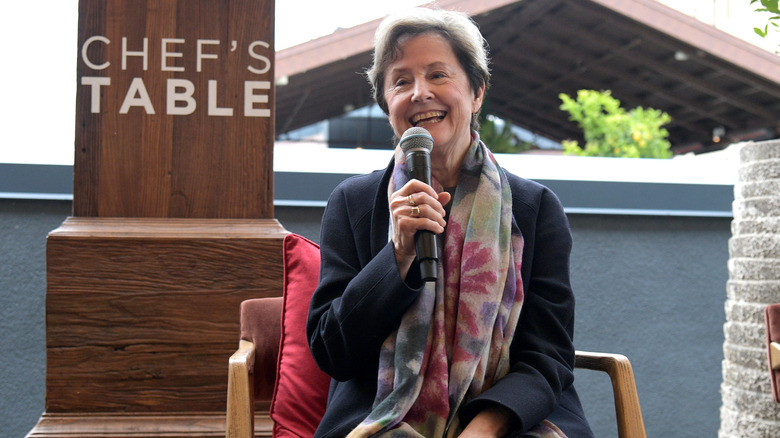
Charley Gallay/Getty Images
To watch other chefs talk about Alice Waters is something akin to witnessing the testimonials of religious zealots. You have a choice, of course, whether or not to believe them, but it is undeniable that they believe themselves to be telling the truth. Which is to say that they believe Waters to be a kind of culinary prophet whose work defies explanation.
Whether or not you’re familiar with her name, you’ve certainly encountered her influence: she practically invented the American farm-to-table movement with her legendary restaurant, Chez Panisse. As much a curator of produce as a traditionally defined chef, Waters has revolutionized perspectives on our relationship with ingredients and where they come from. This is a chef who works so closely with agricultural producers that her menu changes daily to reflect each morning’s harvest.
If this sounds as much like the biography of an activist as that of a chef, that’s because it is. Waters attended the University of California, Berkeley during the mid 1960s, a time at which it was the epicenter of the student protest movement. She studied French history with a focus on the French Revolution, and spent a semester abroad in Paris. This experience would awaken in her a deep appreciation for an approach to eating and cooking that stood in stark contrast — and radical opposition — to the fast food culture of processed and preserved sustenance that had dominated American food-ways, and birth the career for which she is known today.
6. Heston Blumenthal worked odd jobs to fund his first restaurant

Sam Tabone/Getty Images
Perhaps the most acclaimed chef in Britain, Heston Blumenthal’s restaurants have earned seven Michelin stars and the admiration of cultural-culinary gurus like Anthony Bourdain. Heston’s culinary passions were awakened when he was just 15 while on a family trip to Provence, France. This gastronomical fixation deepened as he grew, and he secured a trial internship upon finishing high school. This is where the story takes an unexpected turn: he left the internship after a week, opting instead to work comparatively dispassionate and low-demand jobs (he was a debt collector for a time). He spent his evenings studying cookbooks and culinary philosophy, however, and his time off traveling France in search of the best dishes, wines, and ingredients.
In 1995, Blumenthal purchased a run-down old pub and turned it into his first restaurant, “The Fat Duck.” In a few short years, he would become widely known for not just his technical prowess, but the artistic innovation of his dishes and their theatrical presentation. With his avant-garde approach and inventive use of molecular gastronomy, Blumenthal forever altered the British culinary landscape. And it’s all because his parents fancied a decent meal on vacation.
7. Tabitha Brown was an indie film actress
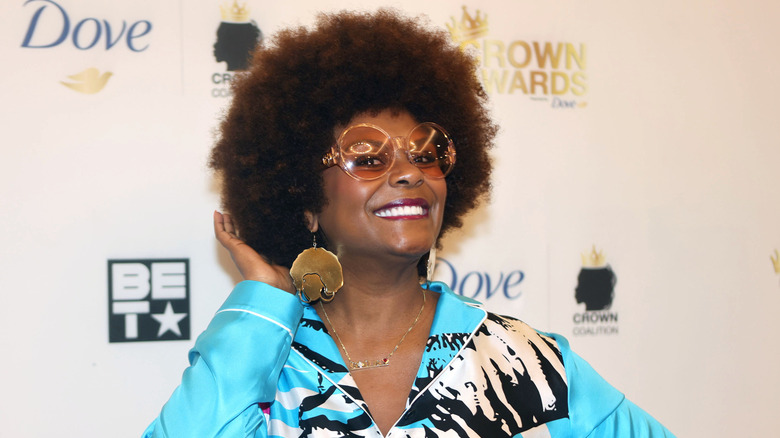
Peter Forest/Getty Images
The term “celebrity chef” is open to two debates: what constitutes a celebrity, and what constitutes a chef. Most professional chefs will tell you theirs is a title that can only be bestowed, not earned at school, and never self-applied. Who has the right of bestowal, however, is a different debate, but if the answer includes the court of public opinion, Tabitha Brown has certainly earned her title.
Brown’s influence on home kitchens the world over is undeniable. With a name that has become synonymous with (actually good) vegan cuisine, Brown is an Emmy award-winner, bestselling author, entrepreneur, and magnetic public personality. It was the public part that came first: Brown’s earliest dreams weren’t of carrot bacon, but making it in Hollywood. To that end, she landed a slew of small acting parts, but was driving for Uber when, while breaking for lunch, she decided to post a video review of a sandwich to Facebook. That video went viral. A few days later, Whole Foods reached out and hired her as a brand ambassador.
In the time since, Brown has amassed 13 million followers and now hosts a show on The Food Network and a children’s show on YouTube TV. A wholesome alternative to the crunchy granola stereotype with which veganism is often saddled, it turns out that the sweet Southern personality of hers has met a need we didn’t know we had. And we’re all a little healthier for it.


Dining and Cooking